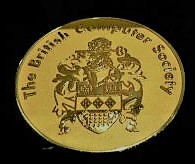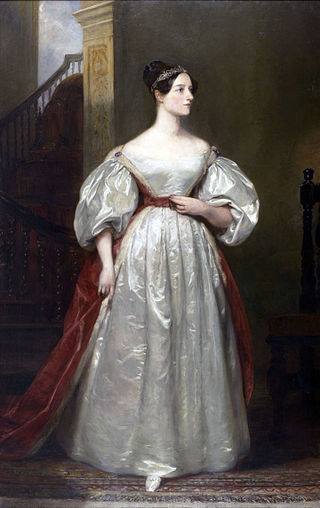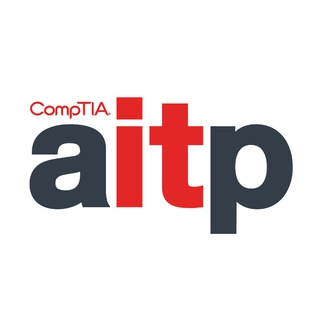Related Research Articles

Augusta Ada King, Countess of Lovelace was an English mathematician and writer, chiefly known for her work on Charles Babbage's proposed mechanical general-purpose computer, the Analytical Engine. She was the first to recognise that the machine had applications beyond pure calculation, and to have published the first algorithm intended to be carried out by such a machine. As a result, she is often regarded as the first computer programmer.

The Analytical Engine was a proposed mechanical general-purpose computer designed by English mathematician and computer pioneer Charles Babbage. It was first described in 1837 as the successor to Babbage's difference engine, which was a design for a simpler mechanical calculator.
The Association for Computing Machinery (ACM) is a US-based international learned society for computing. It was founded in 1947 and is the world's largest scientific and educational computing society. The ACM is a non-profit professional membership group, claiming nearly 110,000 student and professional members as of 2022. Its headquarters are in New York City.

Charles Babbage was an English polymath. A mathematician, philosopher, inventor and mechanical engineer, Babbage originated the concept of a digital programmable computer.

Anita Borg was an American computer scientist celebrated for advocating for women’s representation and professional advancement in technology. She founded the Institute for Women and Technology and the Grace Hopper Celebration of Women in Computing.
Computer Professionals for Social Responsibility (CPSR) was a global organization promoting the responsible use of computer technology. CPSR was incorporated in 1983 following discussions and organizing that began in 1981. It educated policymakers and the public on a wide range of issues. CPSR incubated numerous projects such as Privaterra, the Public Sphere Project, the Electronic Privacy Information Center, the 21st Century Project, the Civil Society Project, and the Computers, Freedom and Privacy Conference. Founded by U.S. computer scientists at Stanford University and Xerox PARC, CPSR had members in over 30 countries on six continents. CPSR was a non-profit 501.c.3 organization registered in California.

The Lovelace Medal was established by the British Computer Society in 1998, and is presented to individuals who have made outstanding contributions to the understanding or advancement of computing. It is the top award in computing in the UK. Awardees deliver the Lovelace Lecture.

Women in computing were among the first programmers in the early 20th century, and contributed substantially to the industry. As technology and practices altered, the role of women as programmers has changed, and the recorded history of the field has downplayed their achievements.
Jean E. Sammet was an American computer scientist who developed the FORMAC programming language in 1962. She was also one of the developers of the influential COBOL programming language.

Frances Elizabeth Holberton was an American computer scientist who was one of the six original programmers of the first general-purpose electronic digital computer, ENIAC. The other five ENIAC programmers were Jean Bartik, Ruth Teitelbaum, Kathleen Antonelli, Marlyn Meltzer, and Frances Spence.
The IT History Society (ITHS) is an organization that supports the history and scholarship of information technology by encouraging, fostering, and facilitating archival and historical research. Formerly known as the Charles Babbage Foundation, it advises historians, promotes collaboration among academic organizations and museums, and assists IT corporations in preparing and archiving their histories for future studies.

The Association of Information Technology Professionals (AITP) is a professional association that focuses on information technology education for business professionals. The group is a non-profit US-oriented group, but its activities are performed by 62 local chapters organized on a geographic basis, and 286 student chapters at college and universities.

Doron Swade MBE is a museum curator and author, specialising in the history of computing. He is especially known for his work on the computer pioneer Charles Babbage and his Difference Engine.
Donn B. Parker was an information security researcher and consultant and a 2001 Fellow of the Association for Computing Machinery. Parker had over 50 years of experience in the computer field in computer programming, computer systems management, consulting, teaching, and research.
Bruce Gilchrist is considered one of the notable figures in modern computing history.
Erwin Tomash was an American engineer who co-founded Dataproducts Corporation, which specialized in computer technology, specifically printers and core memory units. He is recognized for his early pioneering work with computer equipment peripherals. Tomash led the creation of the Charles Babbage Institute and is responsible for The Adelle and Erwin Tomash Fellowship in the History of Information Technology and The Erwin Tomash Library. He died at age 91 in his home in Soquel, California due to complications from Alzheimer's disease.

The Association for Women in Communications (AWC) is an American professional organization for women in the communications industry.
Margaret R. Fox (1916-2006) was an American electronics engineer and computer scientist. She was the Chief of the Office of Computer Information, part of the Institute for Computer Science and Technology of the National Bureau of Standards from 1966 to 1975 and was the first secretary of the American Federation of Information Processing Societies.

The Ada Lovelace Award is given in honor of the English mathematician and computer programmer, Ada Lovelace, by the Association for Women in Computing. Founded in 1981, as the Service Award, which was given to Thelma Estrin, it was named the Augusta Ada Lovelace Award, the following year.
Dorothy Josephine Del Bourgo Kellogg Stein was an early computer programmer, psychologist, author and social activist. Her activities landed her on the cusp of or ahead of her time. She is best known for researching and writing the book Ada, which argued that Ada Lovelace was not the first computer programmer and did not have the mathematical ability to assist Charles Babbage as much as was believed.
References
- 1 2 "Association for Women in Computing - Home". acw-hq.org. Retrieved 20 March 2016.
- ↑ Gay, Martin K. (2000). Recent Advances and Issues in Computers . Oryx Press. pp. 190. ISBN 1573562270.
Association for Women in Computing.
- ↑ "Association for Women in Computing - Puget Sound - Home". www.awcps.org. Archived from the original on 19 March 2016. Retrieved 1 February 2017.
- ↑ Mardesich, Jodi (17 October 1994). "Networking Groups Strive to Put Women Back in the Loop". InfoWorld. Retrieved 18 April 2016.
- ↑ "About AWC – AWC Twin Cities". www.awctc.org. Archived from the original on 14 February 2017. Retrieved 1 February 2017.